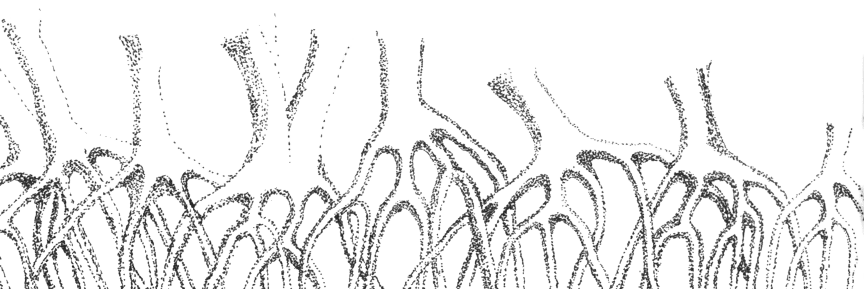Memoir
Nori Nakagami
Nori NAKAGAMI grew up in the suburbs of Tokyo before moving to California and Hawaii for high school and university. She graduated from the Department of Art History in the Faculty of Art at the University of Hawaii. She published her first book, A Red Flower of Ayawaddy, in 1999. That same year her first novel, Kanojo no Purenka, was awarded the Subaru Prize for Literature. She has often traveled in Asia, the United States, or Kumano while writing novels, essays, and travel diaries. Her collection of short stories, Tales of Kumano, was a finalist for the Oda Sakunosuke Award, and her short story The Phone Call, which was translated into English and published in “Cha: An Asian literary journal,” was also a finalist for the Kawabata Yasunari Award. She also teaches fiction writings at Nihon University and Musashino University. In addition, she is a planner and an instructor of the summer seminars at Kumano Daigaku, a cultural organization founded by her father, the novelist Kenji Nakagami in his hometown of Shingu City, Wakayama Prefecture. Her principal works include Heat Asia, Traveler of Moon Flower, Ocean Palace, Tales of Kumano, and Tengu no Kairo. Her most recent novel, Taxi Girl, was published in 2019.
Nori met Dr. Marjorie Evasco at the International Writing Program at the University of Iowa as a fellow in August of 2002, courtesy of the Freeman Foundation. Being from Asia, they all became close friends. In September, Marj invited Nori to join her on a trip from Iowa to New York City to attend a poetry reading at the Asian American Writers Workshop with Barbara Tran. It was her first New York trip after she became a novelist, and it had been only a year since the 9/11 attack. The trip made her think deeply about what she could do with her writing. During the trip, they visited several museums. Staying at Marj’s good friend’s place was such a memorable opportunity. They celebrated Marj’s 50th birthday there also.
The Philippines had always been a familiar country to Nori. In 1983, when she was 12, her father, Kenji, took her to Manila and Cebu.
Kenji Nakagami also participated in IWP in 1982, and his best friend at that time was the Filipino writer and journalist Antonio Maria Nieva. Therefore, their Philippines trip was to meet Antonio. He had planned to work with Antonio to create a journal of Asian literature. However, it did not come true because the Marcos regime imprisoned Antonio.
As getting close to the end of their IWP stay, Marj planned a reading program for Asian writers. The event, held outside the program in a rented restaurant, was a great success, with many guests in attendance. Nori wrote a short story, Lotus Pond, focused on the narrative literature in the Kumano area of Japan for this event and read it in front of everyone worldwide. It was the first short story she wrote directly in English, and she later translated it into the Japanese language and published it in a magazine in Japan.
Nori’s stay in Iowa has been meaningful for the writing life until now. Even though the country, the language, the environment that one has grown up in, or things on one’s shoulders are different, some friends are close by the disposition and the level of the soul. Nori met many writers from around the world during her stay in Iowa but felt the most closeness between writers from Asian countries. Of course, it could probably be just called “friendship.” But at all, she felt they were given birth simultaneously in the same big matrix. She thought she was communicating with them by something like common expectation. Those friendships helped her grow as a writer.
It has been 20 years already since their precious IWP time. Back at home, she lost touch with some writers as time passed. Nevertheless, her friendship with Marj continued. Nori visited the Philippines several times and had the opportunity to participate in some literary meetings in Marj’s invitations.
In 2008, she attended Philippine PEN’s 50th anniversary event to make a speech. She mentioned in her talk about the mind of “Kuroshio current.” Kuroshio is a mighty ocean current that originates in the north Philippines, then reaches Kyushu, then Kii-peninsula, Japan. Some Japanese ancestors may come from the Philippines and Indonesia by this Kuroshio Current. Nori said that her blood could be surprisingly close to her Philippine friends. Maybe that is why she feels so close to Marj.
In 2009, she had an opportunity to speak at De La Salle University, where Marj teaches as a professor. She spoke about the recent situation of the Japanese literary society. Then she spoke about how the matter of life influenced her own writings. Writing is one’s mirror at that moment. If just the instant thing a writer passed in their life differs, the work will be different. She concluded no matter how society changes, she will just live her days and continue writing. Through this event, she met several new writer friends, and still keeps in touch with some of them by SNS.
It was in 2010 that she visited Cebu and Bohol. In Cebu, she read and gave a speech at the 53rd national congress of the Philippine PEN. The theme of the congress was “Solidarity in Literature Without Borders.” The works she has read were Grounded Ship of Riya and The Phone Call. She read Grounded Ship of Riya because it is focused on a woman who has married from the Philippines. It also deals with the strength of women who can set their feet on the soil and find their way to live anywhere in the world. The Phone Call is a work that takes place in Kumano. Kumano and Asia, those two great places, are always linked in her works as themes. Interacting with writers from everywhere was also fantastic at this visit, as she was honored to visit Marj’s hometown in Bohol afterward. On the way back to Cebu from Bohol, when she was looking at the blue ocean and sky from the ferry, she saw two islands look like floating in the water. At that moment, she realized it was the same scenery she had seen in Cebu with her father as a child. No scenery has ever been more beautiful to her.
Nori is still learning a lot from her unforgettable times with Marj, both literary and personal. For Marj’s very special 70th birthday, Nori wishes her heartfelt congratulations. She hopes to keep the friendship, as sister-writers and great friends with loving and caring for many years.








